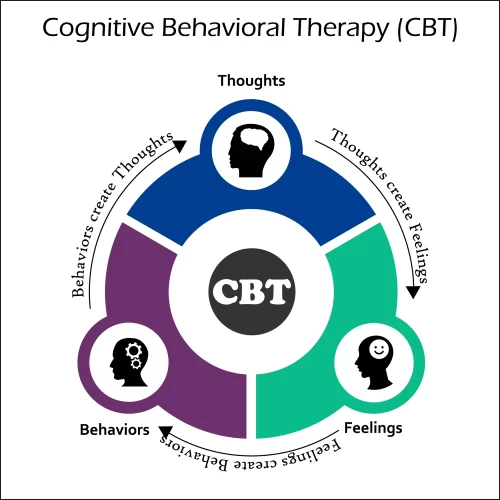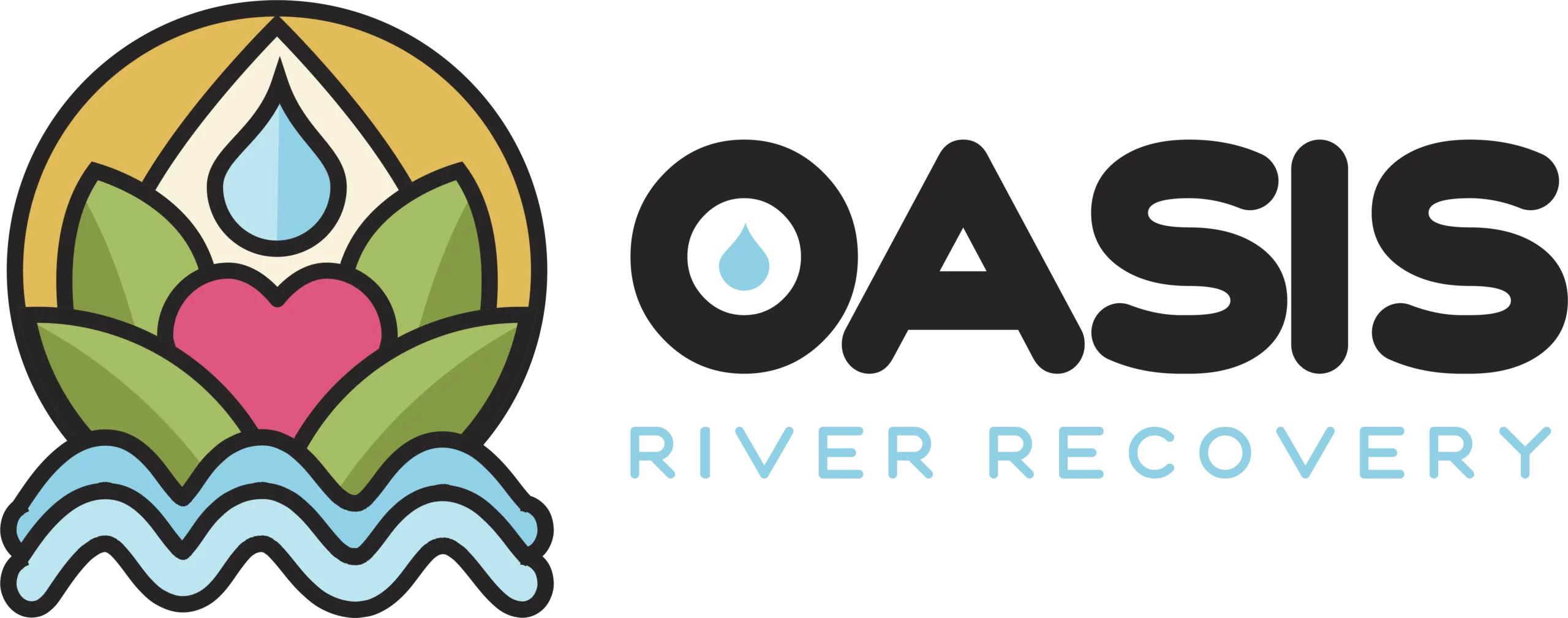Whether you’re seeking therapy and support for yourself or a loved one, we know how confusing the choosing process can be. There is a vast range of addiction treatment methods available, and it can be hard to identify the best option or route there. With research showing that 10% of all adults in the United States face a drug use disorder at some point in their lives, finding proper care is essential.
Cognitive behavioral therapy (CBT) and psychotherapy are two of the most popular therapy approaches in mental health and addiction treatment. In this blog, we take a closer look at the two so you can understand which best matches your needs.

What is Cognitive Behavioral Therapy?
Cognitive behavioral therapy is an evidence-based method founded on the belief our thoughts, feelings, and behaviors are interconnected, and by working to alter negative or distorted thinking patterns, participants can notice positive mood and thought changes.
By gradually assessing and reframing a client’s cognitive beliefs, therapists can empower individuals to understand their unhealthy behaviors and give them the tools to help them cope better in difficult or triggering situations. Alongside addiction treatment, CBT can be used to treat a range of conditions, including anxiety, depression, post-traumatic stress disorder, and stress.
What is Psychotherapy?
On the other hand, psychotherapy is a broader term encompassing a greater range of therapeutic approaches to supporting clients. These therapists will dive deeper into the individual aspects of their client’s psyche, identifying negative or unhealthy emotions and behaviors. As this involves open-ended conversations and a more holistic exploration of a client’s life, it can identify the root causes and create a structure to address them.
Typically undertaken as a one-on-one session, some psychotherapy treatments can also involve group settings or family members to address specific issues. Just like CBT, psychotherapy can be used to treat many mental health disorders, including addiction, depression, stress, and insomnia.
Read more: How Group Art Therapy Helps With Mental Health & Addiction

Cognitive Behavioral Therapy Vs. Psychotherapy
To help you understand the differences between the two, we have put together some examples of typical CBT and psychotherapy sessions.
Typical CBT Session
In a typical CBT session, the therapist would work with the client to identify negative thought patterns related to their social situations. Once identified, the therapist works with the client to challenge and reframe these thoughts, helping them consider alternative perspectives. For example, someone with social anxiety disorder might imagine an anxiety-inducing situation and, when they find themselves in a similar scenario, begin to feel those preconditioned thoughts. This ongoing process helps rewire these damaging cognitive beliefs, allowing for a shift in the client’s perception and action over time.
Typical Psychotherapy Session
In a psychotherapy session, the approach to the client’s problem would be different. Rather than CBT’s structure and focused nature, psychotherapy is more exploratory and involves more open-ended discussion. The therapist might delve into the client’s childhood or significant life events, helping them to uncover underlying patterns, unresolved conflicts, and deep-seated emotions.
This process provides the therapist with clear insight into the client’s current state of mind, allowing them to connect the dots between past and present and guiding them toward a resolution. This process of introspection and self-discovery helps lead to a greater understanding of oneself, supporting individuals to develop healthier coping mechanisms.
Which One Is Right For You?
Cognitive-behavioral therapy and psychotherapy are not inherently superior to one another. Instead, it’s about finding the right fit for your individual and unique needs. Some clients will thrive in the structured and goal-orientated environment of cognitive behavioral therapy, whereas others find solace in psychotherapy’s depth and breadth.
When deciding which of the two you should choose, you should carefully consider the nature of the issue, personal preferences, and the client’s readiness for introspection. Short-term, solution-focused goals can align closely with CBT, while those individuals looking for a more profound understanding of themselves and their emotions might prefer psychotherapy.
Read more: Drug Rehabs In Tennessee: Integrating Nature With Treatment
CBT & Psychotherapy At Oasis River Recovery
Here at Oasis River Recovery, we know that when it comes to addiction, individualized care is the key to successful and sustainable recovery. That is why we work closely with each client to assess their unique requirements and create a fully customized solution. From CBT to Psychotherapy, we offer an extensive range of support designed to help you or your loved ones through each phase of the process.
Want to learn more about our services and how we can help you? Contact our experienced and friendly team today, and let’s take that first step together.



